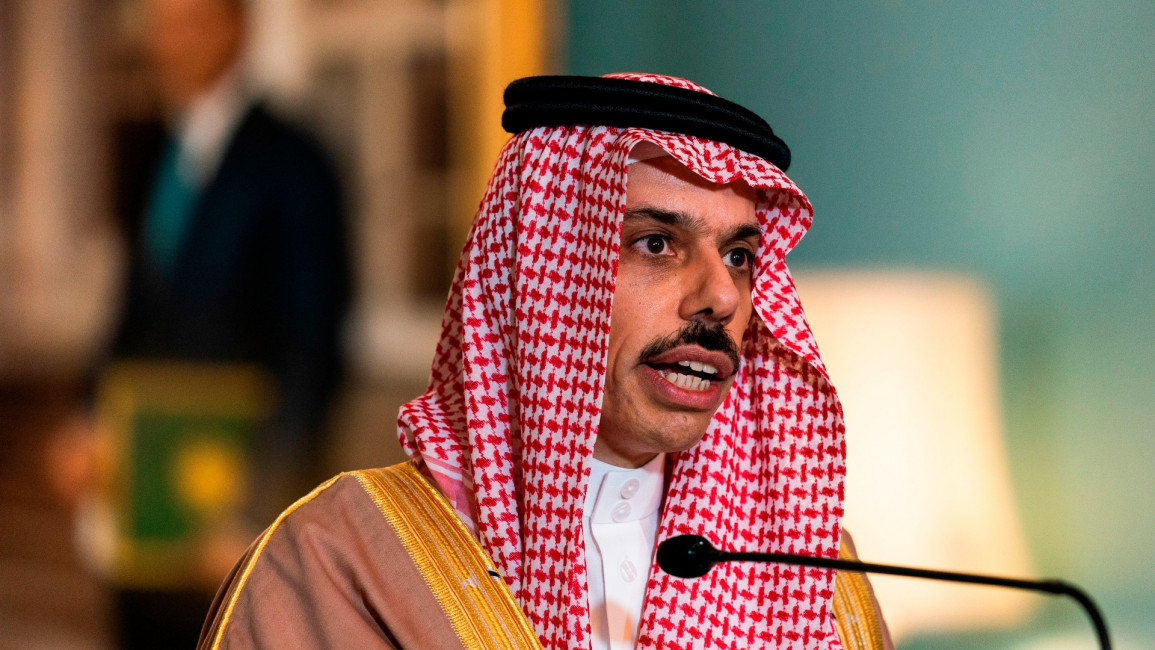Saudi FM remains cool on Israel normalisation, reaffirms support for Palestinian statehood
Saudi Arabia's foreign minister on Tuesday indicated that Riyadh has no plans to normalise ties with Israel, amid sustained speculation that the kingdom could be the next Arab state to formalise ties with the Jewish state.
Speaking at the Aspen Security Forum in Colorado, Prince Faisal bin Farhan reaffirmed Riyadh's view that Palestinian statehood offers the best opportunity for Middle East peace.
"The best way to build on that spirit is to find a path to solving the issue of the Palestinians and finding a path to a Palestinian state," Prince Faisal was quoted by Bloomberg as saying. "Without solving the Palestinian-Israel conflict in a sustainable long-term way, we're not going to have real sustainable security in the region."
Prince Faisal said that the Abraham Accords signed by Israel and several Arab states may be "viewed positively", but gave no indication that Riyadh will be signing a similar deal soon.
The Abraham Accords, brokered by former US President Donald Trump in 2020, saw four Arab countries - the UAE, Bahrain, Morocco, and Sudan - normalise ties with Israel.
The accords drew universal condemnation from Palestinian political factions and triggered waves of protests around the world.
Saudi Arabia has repeatedly said that normalisation with Israel would bring "tremendous benefit" to the region, but that an agreement would depend on progress in the Israeli-Palestinian peace process.
Saudi Arabia and Israel have long maintained informal cooperation and share a common rival in Iran, which both states view as the region's biggest threat to stability.
At the forum on Tuesday, Prince Faisal warned that Tehran "continues to be emboldened" to carry out "negative activity" in the Middle East, such as arming Yemen's Houthi rebels.
The Gulf region has witnessed a spate of attacks on shipping in over the past days, which have been blamed on Iran.
The minister said Riyadh does not oppose a "longer and stronger" nuclear accord with Iran, so long as it ensured that Tehran could not develop nuclear weapons capabilities.


![South Sudan famine [AFP] South Sudan famine [AFP]](/sites/default/files/styles/image_330x185/public/media/images/5FED4B35-6177-43AD-844A-5C63373FCF89.jpg?h=d1cb525d&itok=TC12KIPv)
